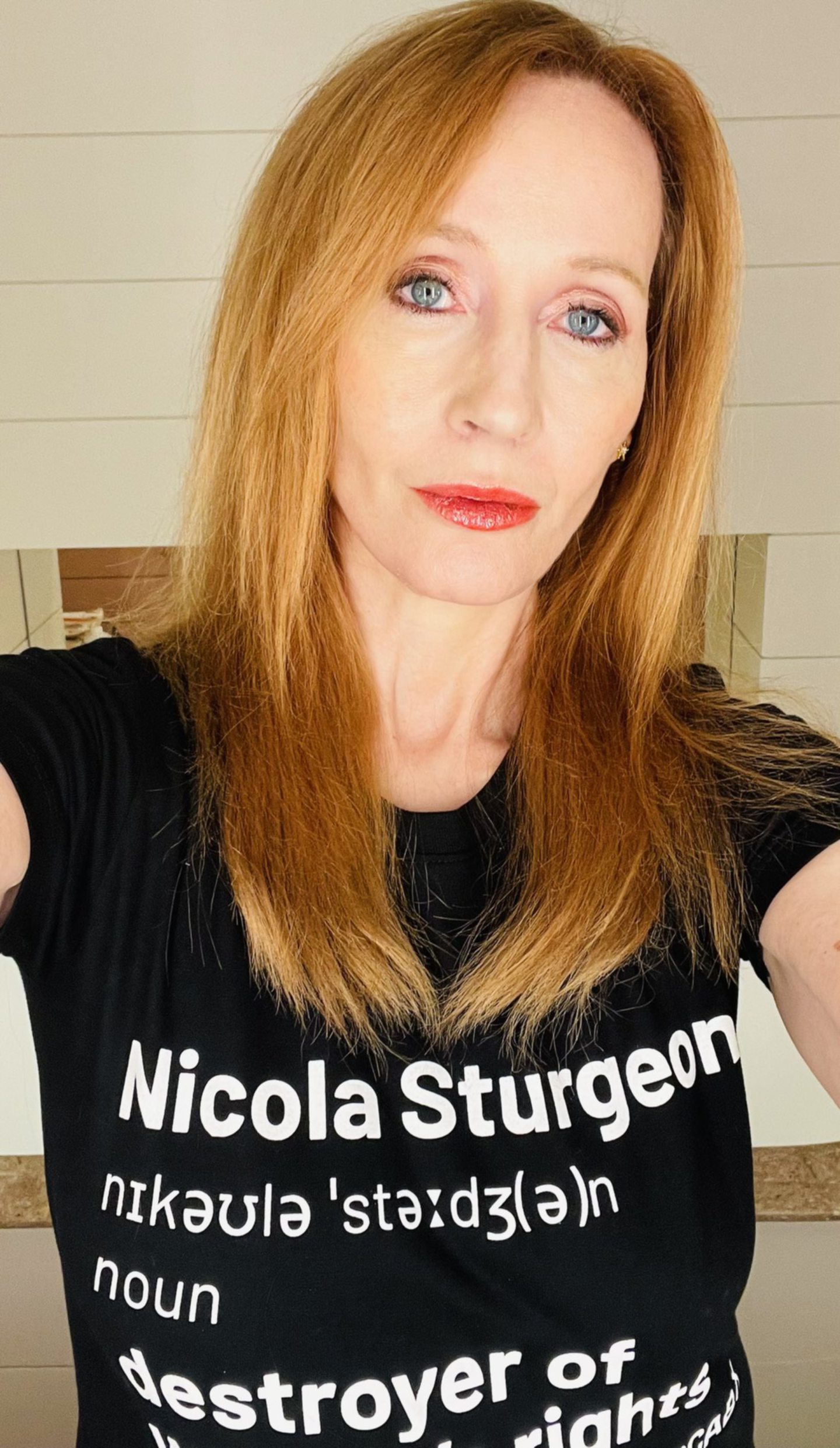April Fools’ Day this year could be the day JK Rowling ends up not in Hogwarts, but in the nick.
That’s the day Scotland brings in a law so far-fetched that even the great Harry Potter author couldn’t have dreamt it up in her vivid imagination.
Beware thinking though that this legislation promises to be the biggest prank of all time; its ramifications and consequences are deadly serious for any of us ever accused of transgressions under it.
The Hate Crime and Public Order (Scotland) Act 2021 is a dangerously chilling and potentially tyrannical piece of law dressed up as concern for supposedly vulnerable groups.
The act will see the creation of a new offence of stirring up hatred against people who have in law certain protected characteristics, including religion, sexual orientation, disability, and gender identity.
‘Extremely uncomfortable’
Rowling last week called the transgender TV personality India Willoughby a man.
Willoughby’s subsequent complaint of misgendering was dismissed by Northumbria police who said it wasn’t a criminal offence.
But such is the lack of clarity so far revealed within the Scottish legislation that it’s unclear whether or not Rowling’s view might be classed here as ‘stirring up hate’, meaning she might have to perform a spell at His Majesty’s Pleasure for expressing her view which is shared by millions.
Like most people I prefer love to hate but Scotland is about to become two-tier society where some folk are given protection by the law from some kinds of hate crimes, while others will simply have to suck up abuse.
A ginger like me for instance will have no protection from those who insult or stir up hate about my auburn thatch, while someone with an artificial eye, being classed as disabled, will be able to call on the full forces of the law to drag the abuser off to the nick.
More seriously, while it will be an offence to stir up hate against trans folk, it won’t break the law to stir up hate against women, or indeed men for that matter.
To be honest I’m extremely uncomfortable with the whole concept of hate crimes and stirring up hate.
It’s a very dangerous intrusion into the rights of free speech and an absolute gift to those who want to play the various victim cards at the expense of robust and honest debate.
Rowling for instance has always denied being transphobic but has expressed strong concerns over accepting the belief that transwomen are actual women.
The idea that disagreeing with someone else’s view, no matter how uncomfortable that may be to some, could be classed as a hate crime punishable by imprisonment is a truly frightening concept.
And the idea that we should try to criminalise a basic human emotion, which although it can be distressing and deeply unkind is a part of our very human make up, is a nonsense and a serious over reach by the under-employed and increasingly out-of-touch chattering classes in the Scottish Parliament
It’s just another example of politicians without serious work to occupy their time in a parliament full of intellectual Lilliputians, finding something to justify their extravagant wages and expenses.
‘Recipe for disaster’
I’m not in favour of hate; it’s an ugly symptom with potentially nasty outcomes.
But in struggling to define what it constitutes this act threatens to overburden our already hard pressed courts and the police.
Already it is policy in Scotland for police officers to record all ‘hate incident’ reports, whether or not there’s any evidence of a crime, but based instead on the perception of the person reporting the incident to them.
The politics behind that approach leads potentially to the Kafkaesque situation where even if the person the incident is supposed to have happened to doesn’t regard it as criminal or wrong, their take on it is simply ignored, in favour of the pre-conceived conscious bias of those reporting it or investigating the matter.
This hate crime law is potentially a charter for the angry, vexatious, venal, and the downright bad, who will see a chance of righting imaginary wrongs and dishing out revenge for perceived slights and insults.
It’s a recipe for disaster cooked up by a liberal political class which thinks that you can expunge human emotions, sentiments, and behaviour, from real life.
This wet behind the ears Holyrood cadre are determined to turn Scotland into a country where vigorous debate and argument is penalised, and sadly they have an army of social climbers with an eye for the main chance who are only too happy to help them.













Conversation